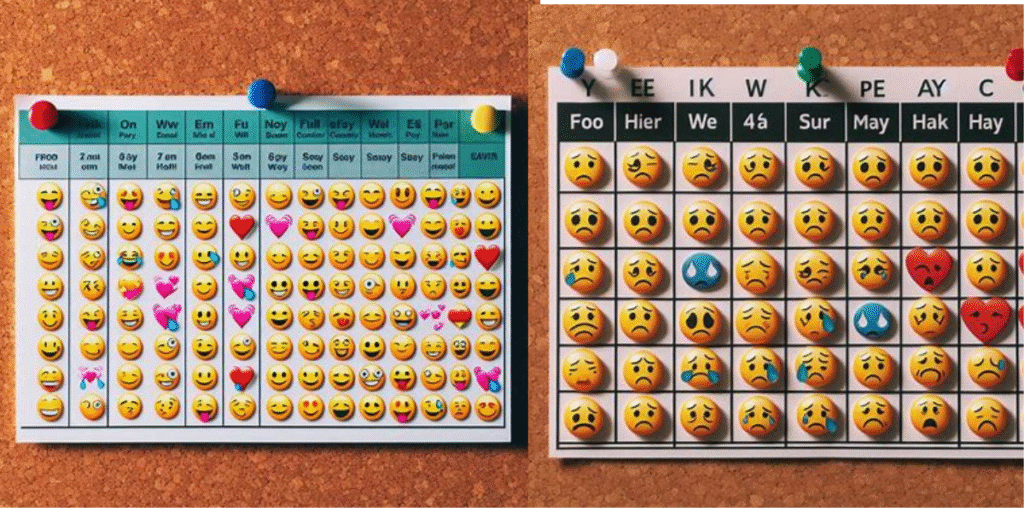The shift to working from home has changed so much in our lives. It has given us freedom, flexibility, and the gift of reclaiming hours that were once lost in traffic. Yet behind the comfort of pajamas and flexible schedules hides a silent struggle, mental health in remote work.
“Behind every screen is a human longing for balance, connection, and peace.”
If you’ve ever felt isolated during long days of silence, struggled to switch off from endless emails, or sensed a creeping burnout despite never leaving your desk, you’re not alone. Thousands of people are living the same story. It’s a quiet challenge, often invisible to the outside world, but very real for those experiencing it
The Silent Weight of Isolation

Remote work often means no casual conversations in hallways, no coffee breaks with colleagues, no shared laughter over office mishaps. Instead, it’s you, your screen, and the echo of your own thoughts.
Read Next: Behind Closed Doors: The Alarming Rise of Self Harm Among Teens
Isolation can feel like a slow drift. At first, it may seem peaceful, fewer distractions, more control over your time. But as days turn into months, the silence can turn heavy. You may notice your mood dip, your motivation fade, or even a deep longing just to sit beside another human being who understands. Isolation often challenges mental health in remote work, making social connections even more important.
If you’ve been feeling this way, it doesn’t mean you’re weak. It simply means you are human. We are wired for connection, and when connection fades, loneliness takes its place.
Boundaries That Blur
One of the hardest parts of remote work is knowing when the day truly ends. The office used to be a physical place you left. Now, it’s everywhere: the dining table, the couch, maybe even the bed. When work lives in the same space as rest, boundaries blur.

You might catch yourself replying to one more email at midnight. Or skipping lunch because there was “just one quick meeting.” Slowly, your home stops feeling like home and starts feeling like a 24-hour workplace.
“Mental health in remote work isn’t just about managing tasks,it’s about managing ourselves.”
This blurring of lines is one of the hidden challenges of mental health in remote work. Without boundaries, exhaustion sneaks in, and joy slips away.
Burnout in Disguise

Burnout doesn’t always look like collapsing under pressure. Sometimes, it’s quiet. It’s waking up tired even after a full night’s sleep. It’s staring at your screen and feeling numb. It’s a lack of excitement for things you once loved.
Remote work burnout often creeps in unnoticed because from the outside, everything seems fine. You’re home. You’re safe. You may even be productive. But inside, the emotional exhaustion grows. Mental health in remote work have a high chance of
Must Read: “Minimal Tech, Maximum Focus: The New Rule of High Performers
Recognizing burnout early is key. Don’t wait for the crash. If you feel the signs: constant fatigue, irritability, or a sense of emptiness, pause and listen. Your mind is asking for care.
What You Can Do
There’s no single solution for everyone, but there are gentle steps you can take to protect your well-being. Follow these and you are going to thank me for an eternity.
- Create a start and end ritual: Decide on a small daily routine that tells your brain when work begins and ends. It could be a morning walk before logging in or lighting a candle when the day is done. These small actions create mental separation.

- Carve out connection: Don’t wait for loneliness to overwhelm you. Schedule video calls with friends, join virtual interest groups, or simply call someone you care about during breaks. Human voices heal isolation.
- Designate a workspace: Even if it’s a small corner of your room, let work live there. When you step away, allow yourself to mentally disconnect. Your mind needs spaces that feel like “rest zones.”

- Take mindful break: Instead of scrolling endlessly, step outside for fresh air, stretch, or close your eyes and breathe deeply for two minutes. These pauses reset your nervous system.
- Ask for help when needed: If isolation or burnout feels overwhelming, reach out, to a trusted friend, a counselor, or even a colleague. Sometimes speaking the struggle aloud lightens the burden.
Are You The Only One Going Through This?

If you’ve been struggling with the weight of mental health in remote work, know this: your feelings are valid. You don’t have to justify them, and you don’t have to carry them alone. Many of us are learning how to adapt to this new reality together.
Hot Read: The Yogic View Of Lonliness
There’s courage in admitting that working from home is not just a matter of discipline, it’s also a matter of emotional survival. And it’s okay to say, “I need support.” Knowing that there are millions of people going through the same the you are going through, makes the journey bearable. More importantly, learn to manage your mind through the techniques mentioned above, with time you will see a DRASTIC CHANGE in your lifestyle. Do come back to the post to thank me!
A Gentle Reminder

Your worth is not measured by how many hours you stay logged in. You are not a machine that must always be productive. You are a human being, one who deserves rest, joy, and connection. Learn to work smart, don’t sit and do nothing, do things that will have the greatest impact on your life, not the things that takes the most time.
Take care of yourself, draw boundaries with compassion, and nurture the connections that make you feel alive. The challenges of remote work are real, but so is your ability to find balance, healing, and hope. Regular breaks, exercise, and mindfulness can greatly improve mental health in remote work.
Next Mental Health Read: The Hidden Comfort In Overthinking and How to Break Free




Pingback: 5 Secrets to Mental Wealth: Fortune Favors the Calm